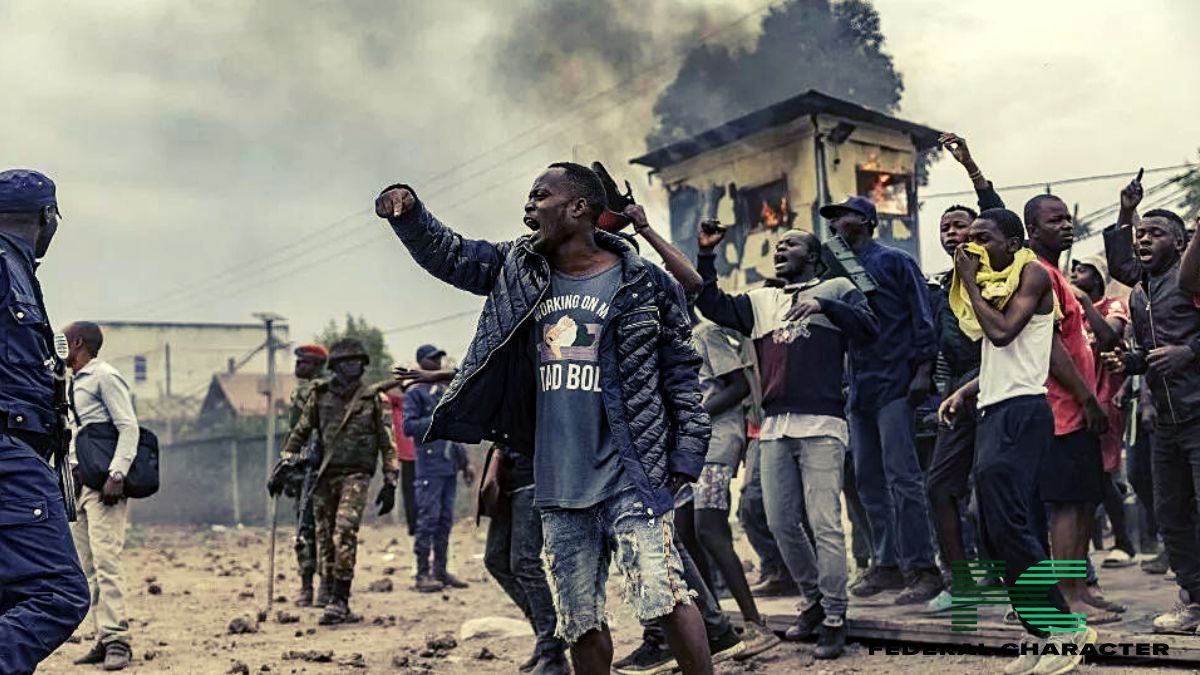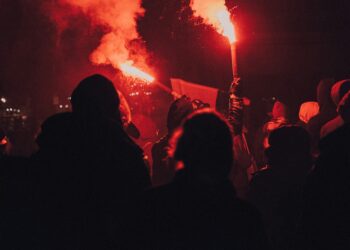A bitter land dispute between neighbouring communities in the eastern Democratic Republic of Congo turned deadly, claiming the lives of nine civilians and three security officials. The alarming incident unfolded in the volatile Ituri province, where clashes between the villages of Nyatsa and Adroval escalated into a violent confrontation on both Sunday and Monday.
The confrontation not only led to the loss of civilian lives but also resulted in the deaths of two police officers and one soldier who attempted to intervene. The violence has left two police officers and two soldiers missing, compounding the gravity of the situation.
Dieudonne Lossa, the head of a local civil society group, shed light on the background of the conflict, indicating that the tragic incident was the culmination of a long-standing dispute over land ownership. However, specific details about the catalyst that escalated the feud into a deadly gunfight remain undisclosed.
Roots of Unrest: An Overview of Eastern Congo
The eastern part of the Democratic Republic of Congo has been a hotbed of instability, often linked to militia activity stemming from a civil war that concluded around the turn of the century. Alongside this persistent unrest, tensions flare periodically due to disputes over land, particularly between the Hema herders and Lendu farmers.
Neglect Amidst Crisis: Humanitarian Catastrophe Unfolds
The broader situation in eastern DR Congo has reached a critical point, marked by surges in violence, extreme hunger, and mass displacement. This dire humanitarian crisis has been largely overlooked, with insufficient funding, limited media attention, and negligence. Despite the monumental scale of suffering, the international community has turned a blind eye to the urgent needs of the region’s population.
Jan Egeland, Secretary General of the NRC, expressed his outrage at the lack of attention given to the dire circumstances faced by the people of eastern Congo. With 25 million individuals struggling with starvation, disease, and violence, and a third of children out of school, the magnitude of suffering is staggering. Egeland’s firsthand accounts of atrocities paint a vivid picture of the extremities that civilians endure.
As of August 2023, less than a third of the required funding has been secured for the humanitarian response planned in the Democratic Republic of Congo. The situation leaves aid agencies grappling with impossible decisions and wealthy nations reluctant to contribute their fair share.
The relentless violence of armed groups has led to the displacement of more than 550,000 people in Ituri Province alone, contributing to a total of 1.7 million displaced individuals across the region. Recent attacks on displacement sites have resulted in tragic losses, emphasizing the lack of protection for vulnerable populations.
Education Under Siege: Children Bear the Brunt
The crisis’s impact on education is profound, with over 750,000 children in Ituri alone experiencing disruptions due to armed conflict. The absence of education exposes these children to increased risks of exploitation, trafficking, forced marriages, and recruitment into armed groups.
Global Gap in Aid: Neglect of Suffering Continues
The neglect of suffering in the Democratic Republic of Congo reflects a wider global issue—a gaping chasm between pledged aid resources and the actual needs on the ground. The NRC’s efforts to bring attention to the crisis are met with apathy from those in positions of power.
Historical Woes: A Call for Equitable Partnerships
The underlying problem extends to a long-standing pattern where African countries, even after gaining independence, continue to rely on foreign support. The cycle of dependency persists, and the international community is urged to provide not only financial assistance but also diplomatic and political support.
The people of eastern DR Congo are left in desperate need of a substantial international response. Jan Egeland calls for the international community to bridge the gap and address the crisis, demonstrating a united effort to alleviate the suffering and bring lasting change to a region in turmoil.
Certainly, African nations consistently find themselves reliant on the support of the global community. This ongoing challenge highlights that achieving independence has not completely resolved our issues. Instead, we often find ourselves in a situation where we inadvertently submit to foreign nations, echoing a distressing cycle of dependency.














